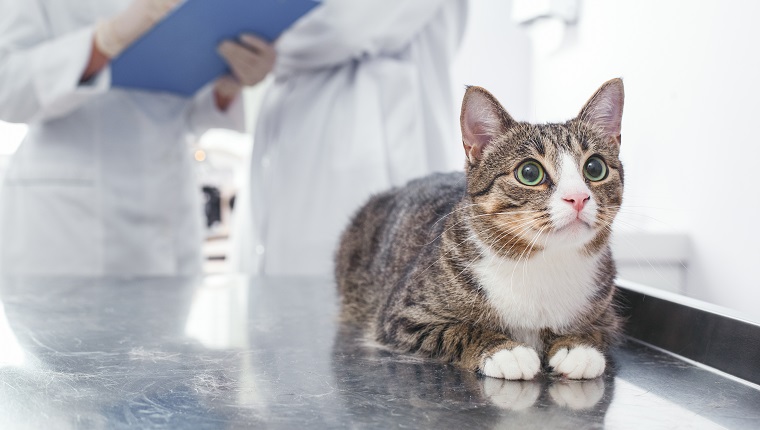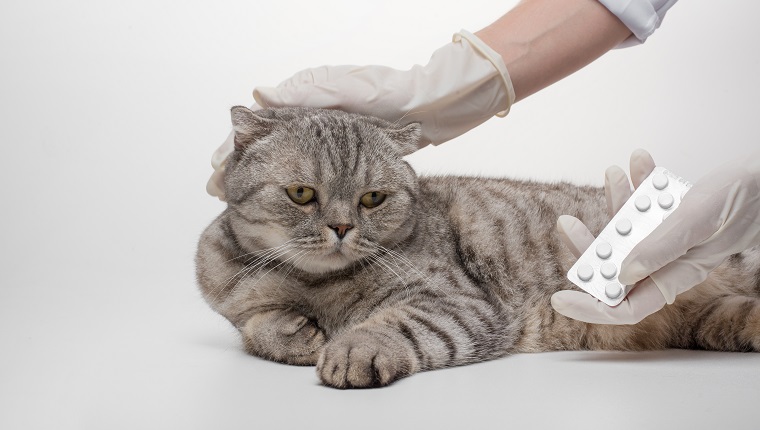Metoclopramide for cats is a medicine that veterinarians primarily prescribe to treat vomiting and nausea, as well as reflux-related issues. It’s the generic name for a drug that is also sold under the brand names Maxolon and Reglan.
The medication works by helping to calm down and normalize the cat’s stomach and digestive system. It is FDA approved for human use, but vets also commonly prescribe it for cats. The drug comes in tablet form and requires a vet’s prescription to purchase.
You can easily order metaclopramide online for your cat from Chewy’s online pharmacy with your vet’s prescription. Closely follow any instructions for the correct and safe dosage and frequency.
Here’s what you should know about the uses, dosage, and side effects of metoclopramide for cats.
Uses Of Metoclopramide For Cats
Veterinarians generally prescribe metoclopramide for cats to treat issues such as vomiting, reflux, and nausea.
The drug works by normalizing the cat’s stomach and digestive system, along with influencing the feline’s brain to help prevent any feelings of nausea.
Dosage Of Metoclopramide For Cats

The following is a guideline for typical use of the drug in cats and must not replace your veterinarian’s advice for your individual pet.
Veterinarians normally prescribe metoclopramide in doses of around 0.1 mg for every pound of the cat’s body weight, usually administered once every six to eight hours. Always make sure to provide adequate water for your cat when giving them this drug.
It’s important to always follow the exact dosage and administration instructions as recommended by your veterinarian. This includes the length of time you should give the medicine to your cat.
Even if symptoms clear up early, you must continue administering the full course of medication until your vet tells you to stop.
Side Effects Of Metoclopramide For Cats
Metoclopramide can produce side effects in some cats, including diarrhea, dizziness, and urinating more frequently than usual.
If your cat shows any signs of an allergic reaction after taking this medication, such as facial swelling or problems with breathing, make sure to visit an emergency veterinarian immediately.
If you suspect your cat took too much of the drug and is suffering from an overdose, then you must contact your emergency veterinarian right away.
Has your vet ever prescribed metoclopramide for your cat to deal with any stomach or digestive issues? Did it help your cat recover? Let us know in the comments section below!




